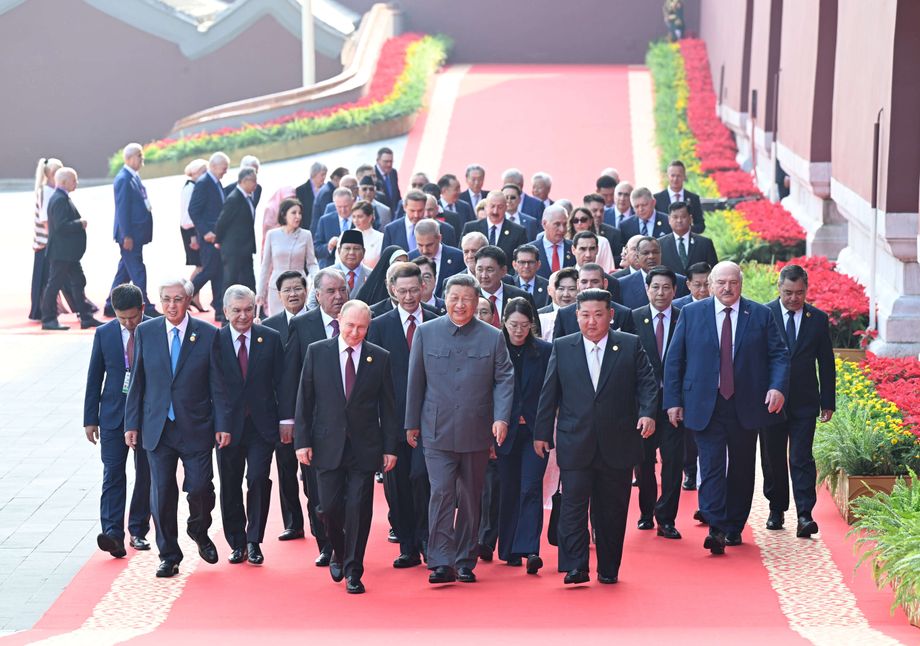NATO Faces New Challenge from Sino-Russian Alliance: A Comparative Analysis
International affairs correspondent with extensive experience covering global politics, diplomacy, and cross-border issues

As global geopolitical dynamics shift, a new military alliance between China, Russia, North Korea, and Iran, dubbed the 'Axis of Upheaval', poses a potential challenge to the NATO alliance. Recent military parades and strategic collaborations signal their intent to reshape the balance of power. This article delves into the military might of this emerging bloc and compares it with NATO's capabilities.
In a significant display of military strength, leaders from China, Russia, North Korea, and Iran gathered recently for a parade in China, commemorating the end of World War II. This coalition, informally known as the 'Axis of Upheaval', aims to challenge the Western-dominated global order, led by the United States. Despite the skepticism expressed by experts like Jyrki Kallio from the Finnish Institute of International Affairs, who questions the coalition's intent and capability, the alliance's potential cannot be ignored. According to the Global Fire Power index, the four-nation bloc boasts a combined military force of 5.29 million active personnel, surpassing NATO's 3.44 million.
While NATO holds a numerical advantage in terms of reserve forces, with 900,000 more personnel, the 'Axis of Upheaval' enjoys a significant edge in serviceable manpower. China alone contributes to a pool of approximately 720 million serviceable individuals, almost doubling NATO's figures. Such numbers underscore the potential manpower advantage the alliance could wield in a prolonged conflict. However, the true test lies beyond numbers, involving factors like military training, logistical capabilities, and technological advancement.
In terms of military hardware, the 'Axis of Upheaval' surpasses NATO in several critical areas. They possess about 7,000 more tanks and a greater number of submarines and nuclear warheads. This edge in certain military capabilities highlights a strategic advantage in ground and underwater warfare. Yet, NATO maintains superiority in air power, particularly with a larger fleet of helicopters and naval vessels, which could play a pivotal role in maintaining strategic deterrence and rapid deployment capabilities.
Nuclear capabilities remain a crucial aspect of the power dynamics between these alliances. Within NATO, only the United States, the United Kingdom, and France possess nuclear arsenals. On the opposite side, Russia leads the 'Axis of Upheaval' with the majority of nuclear weapons, while other member states, notably Iran, are reportedly seeking to expand their nuclear capabilities, despite international opposition. This nuclear dimension adds a complex layer to the global strategic balance, raising concerns over potential arms races and regional security implications.
Experts like Emil Kastehelmi caution against relying solely on quantitative assessments of military power, emphasizing that Global Fire Power provides a broad overview that may not fully capture the qualitative aspects of military readiness. Factors such as the sustainability of supply chains, the quality of military training, and the will to defend play critical roles in real-world military effectiveness. As the geopolitical landscape evolves, both NATO and the 'Axis of Upheaval' must navigate these complexities to safeguard their strategic interests.
About Alex Rivera
International affairs correspondent with extensive experience covering global politics, diplomacy, and cross-border issues